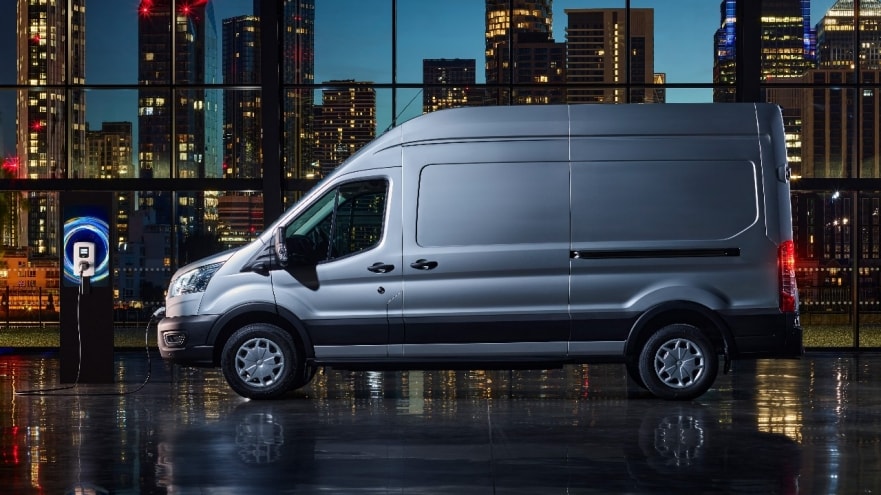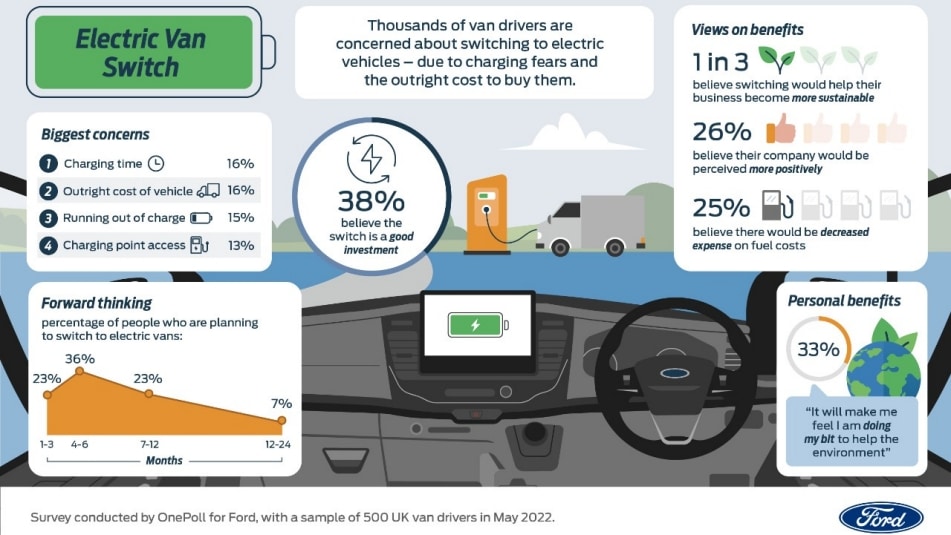Despite some drivers having concerns, there is optimism around the future of electric vans too, with almost half (49 per cent) believing electric vans will be the most common type of van on Britain’s roads within the next 10 years – with only nine per cent disagreeing. On this, more than a third (36%) said they or their employer plan on switching to electric vans within the next four to six months and nearly two-fifths (38 per cent) said they thought it was a smart investment.
Showcasing the power of the green pound, over a quarter (26%) of van drivers believed their company would be perceived more positively for driving electric vans. Similarly, almost half (48%) believed if their colleagues or friends were to buy an electric vehicle, it would positively impact their work and lifestyle.
Over half (52%), also agreed with the statement that they, or their company, is planning on making the switch to an electric van because they’re “really cool”!
Mandy Dean, Commercial Vehicle Director, Ford of Britain, said: “With the Ford Transit being the best-selling vehicle in the UK, tackling the concerns of Britain's workforce is an important task in helping the nation go green and make the switch to electric. Understanding people’s perceptions of electric vehicles is vital to making sure we’re all on board, including within the vital commercial vehicle segment which is so important for keeping the UK’s economy growing. Our research report shows while there are concerns about the switch, van drivers seem willing to embark on the journey to go green and Ford Pro has the capabilities to make the switch easier”
“With concerns around being out pocket a key worry for drivers, we’ve introduced simplified billing and administration via Ford Pro Charging software which means that fleet drivers can charge at home and the energy cost will be exactly calculated and sent to their business for your reimbursement.”
Busting some of the misconceptions around range anxiety and reducing vehicle down time, the newly introduced Ford Pro software, available on E-Transit and E-Transit Custom to come, has a host of new features to help support van drivers:
- Ford Pro Intelligence includes integrated features within their vehicles that enable customers to better manage and maintain their fleets, such as live vehicle health and telematics data, improved vehicle uptime, safety, and security, and improving overall productivity
- Ford Pro also helps businesses setup and map out the charging infrastructure, be it at home, depot or on the public network, and Ford telematics tools keep an eye on range, nearest charge points and any required maintenance on an individual vehicle
- Charging network operators combine into one “Blue Oval” network, helping fleet systems to identify at home charging and reimburse drivers
- Digital dashboards help businesses manage when to start and stop charging vehicles, to avoid peak times. Charging can also be assigned per route, so vehicles aren't fully charged when they won’t need it
- Smart support through FordLiive can access the latest 60 days of vehicle health to provide the best advice, anticipate upcoming maintenance needs and reduce turnaround times
-ENDS-
Notes to editors:
*Ford surveyed 500 UK based adult van drivers or owners, the research was conducted by OnePoll, this sample size is representative of UK van drivers and was recommended by OnePoll. Of the 500, 61% own the van they drive, 32% stated their employer owns the van, while 7% responded with “other”. 40% of respondents were female, 59% male, and 1% were “other or prefer not to say”.
** The quoted range of up to 196 mile range relates to the 2-tonne E-Transit, the 1-tonne E-Transit Custom has a range of up to 236 miles
***The main barriers to going electric are:
1. Charging time (16%)
2. Outright cost of the vehicle (16%)
3. Running out of charge (15%)
4. Charging point access at home, on the road and at work (13%)
5. Cost of maintenance (12%)


